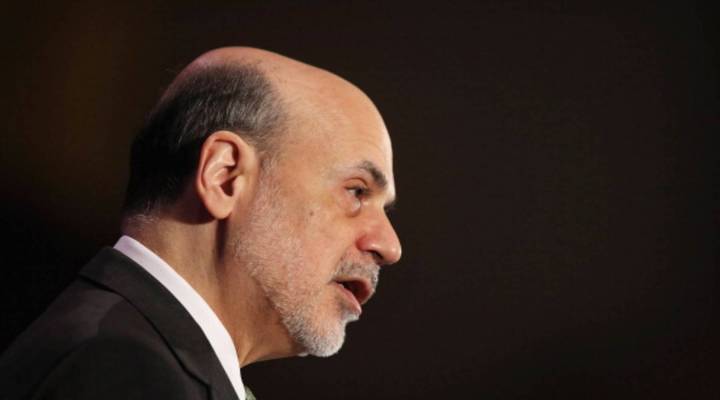
Bernanke’s tape: Who’s afraid of rising rates?

“If interest rates go up for the right reasons – that is, both optimism about the economy and an accurate assessment of monetary policy – that’s a good thing. That’s not a bad thing.”
– Federal Reserve chairman Ben Bernanke’s signoff at the end of his speech, June 19, 2013
That “glass is half full” assessment followed Bernanke’s acknowledgment that interest rates are already rising: the average 30-year mortgage rate hit four percent recently, which is still historically low but up from the all-time trough of 3.25 percent earlier this year. The rise comes, as he put it, “in part due to more optimism – I think – about the economy.“
And, yes, the economy is improving, if slowly. The unemployment rate is improving, again slowly, companies are cash rich, and housing is booming — existing home sales, new home sales and housing starts are all up.
Time then to “taper,” to slow the Fed’s quantitative easing program, and allow rates to rise (let’s forget for now that they’re already rising).
Who benefits from higher interest rates?
- Savers benefit, for a start: people with money in the bank have been getting close to zero interest for some time now. Factor in inflation, and many will have lost loney in the low interest rate environment, so they’ll be happy.
- Investors who hold floating-rate securities will benefit, because rising rates will make them float upwards, in terms of the amount of money that they’ll be able to pay each month.
- People who buy bonds from now on will benefit, because bonds issued in the future will pay more interest.
- And, of course, banks will benefit, because they will be able to justify widening the difference between the amount they pay to borrow money, and the amount they charge to lend it out.
Who gets hurt from rising interest rates?
- Companies do, because their borrowing costs rise. It’s true that many companies are sitting on big cash reserves, but not all are, and as rates go up, the growth of companies with low or no cash reserves could slow. That’s particularly true for small and medium sized enterprises, by the way.
- Many bond investors could suffer as rates rise, as the value of their portfolios will be crushed: the bonds coming on to the market as rates rise will have higher interest rates than the bonds those investors now hold. People will want to buy the new bonds, so if you’re holding the old bonds you’ll have to mark them down if you want to sell them or value them accurately.
But most importantly, consumers who owe money or want to borrow money will be affected.
If your loan is a fixed rate debt, like a 30-year traditional mortgage, you’re in good shape. But if it’s adjustable or floating, you’re going to end up paying more: And if you were hoping to buy something big, like a car, a home or an education, run those numbers again, because your costs are going to start going up.
Let’s take mortgages. A lot of people like to harp on the fact that even at 4 or 5 percent, loan rates are still historically very low. But that means nothing to the people who want to borrow today. If they’re able to buy at 5 percent, but not at 6 percent, the history doesn’t mean a damn thing: the higher interest rate is still cutting people out of the market.
And if what we’re told is correct, that the housing market is key to the recovery, we need to be worried about rising rates. If they rise at the velocity we’ve seen over the last several months, they will cut a lot of buyers out of the market. That will stifle the recovery, reverse the unemployment numbers and turn Bernanke’s taper into a full-fledged mullet.
There’s a lot happening in the world. Through it all, Marketplace is here for you.
You rely on Marketplace to break down the world’s events and tell you how it affects you in a fact-based, approachable way. We rely on your financial support to keep making that possible.
Your donation today powers the independent journalism that you rely on. For just $5/month, you can help sustain Marketplace so we can keep reporting on the things that matter to you.













